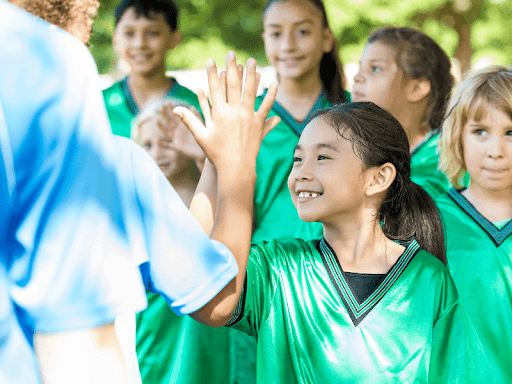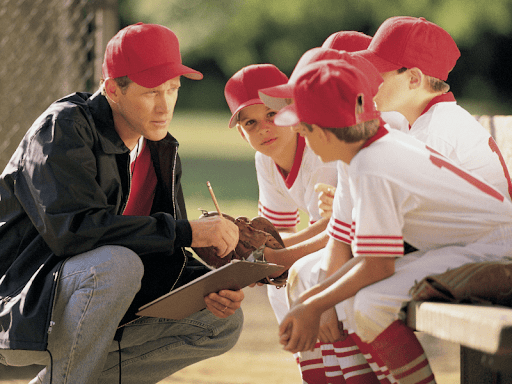Building Social Skills with Youth Sports
For a growing child, encouraging social skills development is just as important as ensuring proper nutrition or treating illnesses.Here are 5 ways sports facilitates building social skills in children…
1. Teamwork and Cooperation
Team sports, by their nature, necessitate teamwork and cooperation, imparting to children valuable lessons about working effectively with others. Whether it’s a well-coordinated pass in a soccer game or a carefully executed basketball strategy, the child learns the significance of each team member’s role and how individual actions impact the collective outcome.
This ability to understand and contribute to group goals translates into other areas of a child’s life. In school, they might be better equipped to collaborate on group projects. At home, they may engage more proactively in family activities.
2. Communication Skills
Sporting activities provide an invaluable framework for the development of both verbal and non-verbal communication skills. On the field, children must communicate their intentions and strategies to teammates effectively, sometimes under pressure and often without words. For example, a quick glance or a specific gesture can signal a teammate to make a move.
Likewise, discussing game strategies or expressing frustration or disappointment after a challenging game offers opportunities for practicing expressive language and listening skills. The capacity for clear and empathetic communication cultivated in sports is directly applicable to other everyday social interactions.

3. Leadership and Responsibility
Sports offer multiple opportunities for children to develop leadership skills and a sense of responsibility. A child may be chosen as a team captain, where they are responsible for motivating others, making strategic decisions, and leading by example. Similarly, sports instill responsibility through the expectations of regular practice, adherence to rules, and acceptance of consequences for actions.
For instance, a child learns that consistent practice is key to improvement, and a mistake during the game can affect the whole team. These leadership and responsibility skills often carry over into other spheres of life, such as school tasks or home chores, enhancing overall personal growth and accountability.
4. Conflict Resolution
Sporting activities, particularly team sports, inevitably generate conflict situations. These may arise from disagreements over a referee’s decision, a teammate’s error, or disputes about game strategies. Such conflicts offer children tangible opportunities to develop and apply conflict resolution skills. They learn the importance of listening to others’ perspectives, expressing their views clearly and respectfully, and negotiating a compromise that is acceptable to all parties involved.
Moreover, sports encourage children to manage their emotions, particularly disappointment or frustration, constructively. These conflict resolution skills, honed on the sports field, can significantly influence a child’s approach to disagreements in other social contexts, be it at school or home.
5. Empathy and Respect for Others
Participation in sports can also foster empathy and respect for others. Children may empathize with a teammate’s struggles or disappointments, fostering a sense of camaraderie and mutual support. They learn to appreciate the diverse strengths and skills that different team members bring, cultivating a respect for individual differences.
Additionally, sportsmanship norms encourage respect for opponents and officials, teaching children to value fairness and integrity over winning. These lessons in empathy and respect extend beyond the sports field, contributing to more respectful, empathetic interactions in broader society.










